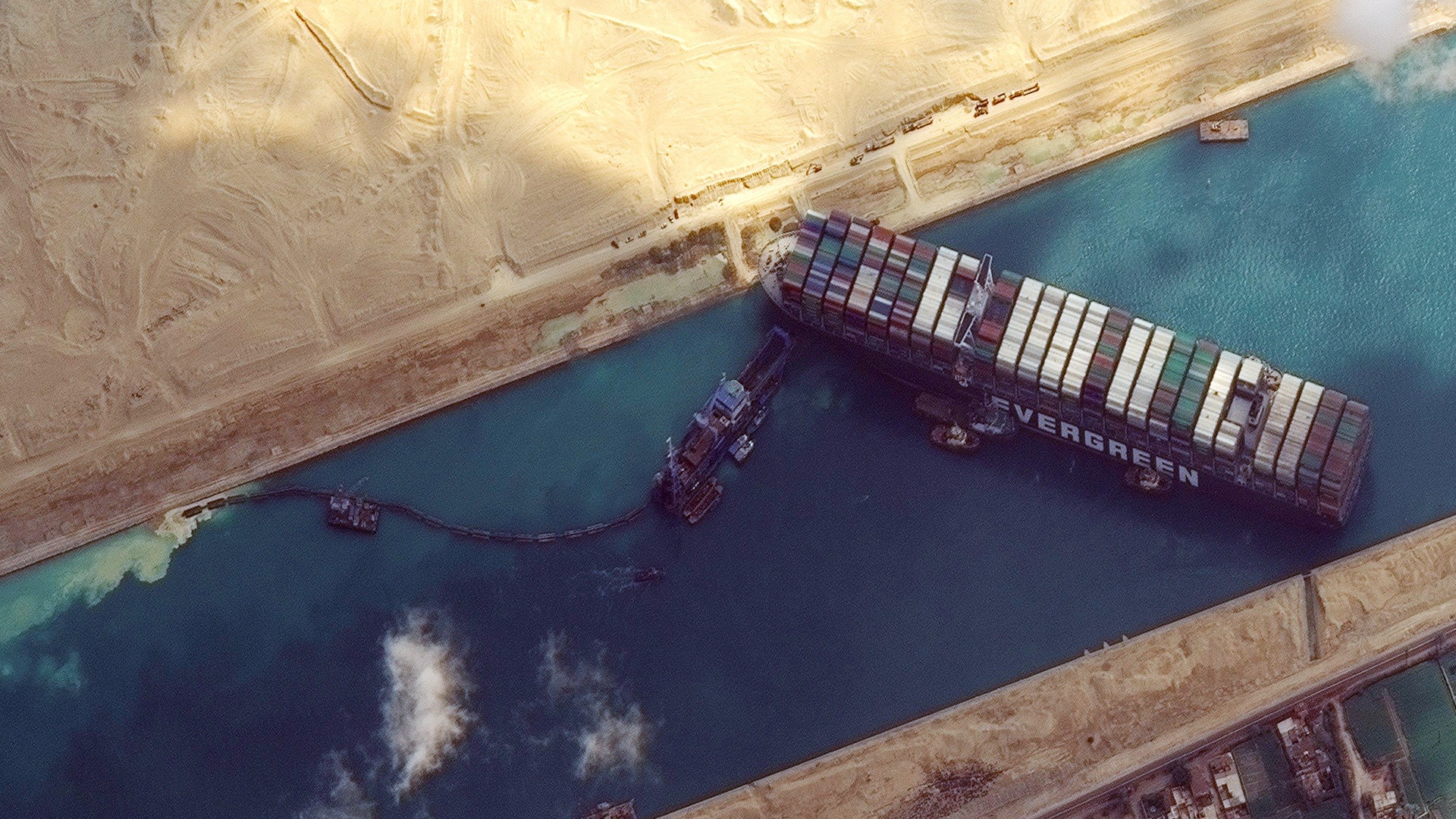On March 23, while casually passing through the canal of Suez, an ultra large container ship of Ever Given was grounded, seizing both ways the traffic for 6 days that is halting 10 bln USD worth of marine traffic1. Suez Canal accounts for 12% of world trade. The losses due to the blockage are yet to be estimated, but the current expectations already are north of 100 mln USD. Surely, most of the losses would be ceded to insurance and reinsurance companies, who will be left to fulfill their contractual obligations.
The future claims will fall into one of few groups:
- Hull and machinery – these are the losses of the vessel itself. While the initial suggestions point out that the reason for the grounding was the wind and not hull failure, an exhaustive investigation is still pending. Dredgers working to dislodge the stranded vessel found sandy surfaces that could alert of a physical damage to the body of the ship. Hull and machinery insurance also includes the mentioned salvage operations.
- Liability:
- Business interruption and cargo delay – the main beneficiaries of these claims would be the other vessels stuck at Suez, waiting to proceed and anyone who had even half of package at one of those vessels. The number of claims could be well over couple thousands.
- Damage to the canal – this section is rather self-explanatory. Due to the grounding, the vessel could have injured either the bed of the canal or the walls, which is yet to be determined.
- Loss of revenue – The revenue of Suez Canal Authorities is estimated to be 14-15 mln USD daily. Before the covid and freeze of international trade, by the approximations of Moody’s Suez Canal advanced 2%2 of Egypt’s annual GDP.
In relation to the accident, the names of two insurers surface: Tokyo-based MS&AD Insurance Group and UK P&I Club. The former is responsible for the H&M insurance and refrained from making any comments on the matter. The other insurer is one of the 13 mutual groups that insure third party liabilities in marine markets. UK P&I Club was rather open and shared their outlook on the incident. Their insurance arrangement covers3 the first 10 mln USD of any claim, afterwards losses up to 100 mln USD are going to be shared in a pool. Beyond that, the firm has 3 bln reinsurance cover.
The most compelling fact about this accident from the insurance perspective, is the declaration of General Average4. It is a historical legal concept that means cargo owners or anyone with an interest in the voyage share the losses along with the shipowners. The declared General Average is in excess of 60%, that is either the cargo owner or their insurance firm would have to make a deposit of 60% of their cargo value before it can be released. In fact, the settlements of General Average cases are a lengthy process that take years to finalize.
The initial estimations of the accident are troubling. The already stressed insurers and reinsurers, strained the pandemic or the wildfire claims, are put into this complex and costly process. What follows is yet to be seen.
